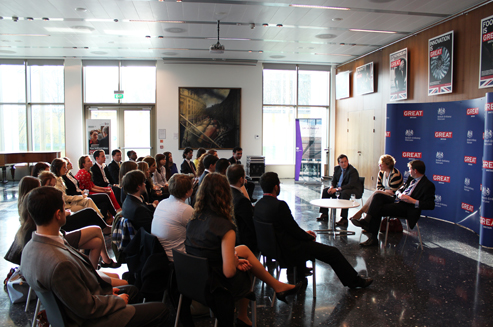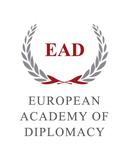Exclusive Interview with Jason Worlledge- Executive Director of the European Academy of Diplomacy.
Where did the idea of establishing the first non-governmental, non-for-profit diplomatic academy in Europe come from?
The goal was to set up an academic institution that would help young leaders prepare for careers in Polish and EU diplomacy. This was our “Akademia Młodych Dyplomatów”. Since 2004, nearly 4000 students have graduated from the program and many have gone on to start careers in the Polish Ministry of Foreign Affairs, EU and international institutions. In 2010 we began offering international programs that focused on the eastern dimension of EU and Polish foreign policy, particularly the Eastern Partnership which Poland had a major hand in creating during its EU Presidency.
The EAD’s mission has always evolved around leadership development; preparing the next generation of leaders for the multitude of challenges that faces our world. Not only young Polish leaders, but global and international because, as we can see, problems rarely affect only one stakeholder.
Being non-governmental and not-for-profit allows the EAD to remain extremely agile where our governmental and university contemporaries are perhaps less so. We look at the current challenges and issues and develop training programs that provide our students with expert level, up-to-date knowledge.
Where do most of the international students come from?
Many of our international students are coming from Eastern Europe, countries of the Eastern Partnership, from the Balkans, but also Western Europe. Poland has a story to tell of successful transition from a communist country to a free and open democracy and economic system and countries that are like Poland was 20 years ago, want to learn these lessons. They also want to learn from Poland’s experiences engaging with our Eastern partners and transitioning democracies. We also have many Polish students who live abroad and come back for our programs, as they are unique.
Who is eligible to apply? What kind of studies and experience do you look for in the potential students for the European Academy of Diplomacy?
We are looking for future leaders that are interested in the areas of traditional diplomacy, foreign policy, international relations and commercial and economic diplomacy. All of our students should see themselves as potential or future leaders and able to make a positive impact on their communities and influence the context of their country.
What would you describe as the three attitudes and traits needed most by future diplomats?
1. A global view and understanding of the world;
2. Social Media & Technology / People’s approach (Public Diplomacy);
3. A strong understanding of business and economics.
It is interesting that the more embassies and Ambassadors I work with, they stress to us to communicate the importance of business in diplomacy. I have heard the current British Ambassador in Poland say on several occasions that understanding trade, business and economics is one of the most important skills for diplomats to possess. Hillary Clinton made 79 international trips during her 4 years as Secretary of State. Developing business contacts and aiding US companies abroad were a regular theme during many of these. It’s not only the US, most countries view trade and commercial diplomacy as key components of a holistic foreign policy.
How would you describe the unique methodology used to develop the practical skills of future diplomats?
It starts with exceptional trainers with vast practical experience and ability to communicate this to the students. The methodology is, as much as possible, hands-on and interactive. This means case studies, this means simulations, and this means discussions with other participants, challenging views, assumptions and stereotypes. We ask our students difficult questions and expect them to ask of us the same.
The European Academy of Diplomacy (EAD) is the first non-governmental, non-for-profit diplomatic academy in Europe, with a mission of shaping, sharpening and inspiring a new generation of enlightened international leaders.
For more information visit: EDA
Photo © The European Academy of Diplomacy



